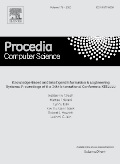Knowledge Hub
BEVs Beyond Range Anxiety - Cognitive Interviews to Elicit the Perception of Mode Choice
2014
Author(s): Kawgan-Kagan I, Daubitz S
Electric mobility comprises a variety of transportation systems, notably the combination of public transport and electrically powered vehicles. It serves as an inherent part of future urban integrated mobility concepts.

Towards a Holistic Approach for Problems in the Energy and Mobility Domain
2014
Author(s): Lutzenberger M, Masuch N, Kuster T, Keiser J, Freund D, Voß M, Hrabia C-E, Pozo D, Fahndrich J, Trollmann F, Albayrak S
With the current rise of electric vehicles, it is possible to use those vehicles for storing surplus energy from renewable energy sources; however, this can be in conflict with providing and ensuring the mobility of the vehicle's user.
Implications of 2DS and 1.5DS for Land Transport Carbon Emissions in 2050
2016
Author(s): Gota S, Huizenga C, Peet K
This report explores land transport emissions trends and mitigation potential relative to the 2 degree Celsius Target (2DS) and 1.5 degree Celsius Target (1.5DS) called for under the Paris Agreement on climate change.
Proposed Avenues for NDCs
2016
Author(s): Gota S, Peet K, Windisch E, Bongardt D, Eichhorst U
NDCs represent a unique opportunity to increase bold mitigation and adaptation measures in transport and other sectors as all Parties to the UNFCCC are communicating their commitments to reduce emissions and increase resilience on sectorial scales in the context of the UNFCCC system.
Comments and Suggestions on Finalized Draft on “Specific Requirements for Electric Power Train of Vehicles”
2020
Author(s): Alliance for an Energy Efficient Economy (AEEE)
In this "Comments and Suggestions on Finalized Draft on “Specific Requirements for Electric Power Train of Vehicles” document, AEEE expressed its views on the safety concern that the draft does not take into consideration.
State Energy Efficiency Index 2019
2019
Author(s): Kumar S, Mathew S, Kachhawa S, Rajah V R, Singh P
This State Energy Efficiency Index has been developed by Bureau of Energy Efficiency (BEE) in association with Alliance for an Energy Efficient Economy (AEEE) and categorises states as ‘Front Runner’, ‘Achiever’, ‘Contender’ and ‘Aspirant’ based upon their efforts and achievements towards energy efficiency implementation.
Do sparsely populated rural areas have the potential for the use of electric vehicles?
2014
Author(s): Mann A, Klopsch K, Bieker L, Wölki M
By 2020, one million electric cars shall be driving in Germany. Demonstration activities, fleet trials and pilot operations are performed in various cities around the world. However, do sparsely populated, rural areas also have the potential for the use of electric vehicles? In applying the example of Germany, this study recorded the current situation of households and their needs concerning mobility in small towns and rural regions.
Real CO2 Emissions Benefits and End User’s Operating Costs of a Plug-In Hybrid Electric Vehicle
2014
Author(s): Millo F, Rolando L, Fuso R, Mallamo F
This article presents an overview of the effects of some optimization parameters on the performance of a case study pHEV featuring a series architecture and highlights the gap between the real CO2 emissions of the vehicle and the values obtained with the calculation procedure prescribed by the European regulation.
Energy Efficiency – A compelling Value Proposition and Enabling Resource for Smart Cities
2019
Author(s): Kumar S, Sinha J.P, Setty S, Sachar S, Mathew S, George G, Kasamsetty S
This paper is an effort to position energy efficiency as a significant enabler a) to reduce the GHG emissions footprint of cities and b) to act as a glue to integrate traditional, intelligent and digital technologies with the modern fabric of the smart cities.
Putting the Power in 'Socio-Technical Regimes' E-Mobility Transition in China as Political Process
2014
Author(s): Tyfield D
This paper explores the key contributions that a Foucauldian-inspired cultural political economy offers, going beyond central problems with the multi-level perspective, specifically regarding a productive concept of power that affords analysis of the qualitatively novel and dynamic process of transition; and the incorporation of the exogenous ‘landscape’ into the analysis.



